
The Enchanted Waterways of Spreewald
Nestled in the heart of Germany, Spreewald is a UNESCO biosphere reserve renowned for its intricate network of waterways. This magical region is a paradise for nature lovers, offering lush forests, serene canals, and charming villages. The labyrinth of streams and rivers creates a unique landscape that is perfect for kayaking, canoeing, and boat tours. Here, you can drift peacefully along the water, surrounded by vibrant greenery and the soothing sounds of nature. The area is also home to a rich cultural heritage. The Sorbs, a Slavic minority, have lived in Spreewald for centuries, and their influence is visible in the local customs, language, and cuisine. Be sure to try the famous Spreewald gherkins, a regional delicacy, and explore the traditional villages where you can witness local crafts and folklore. In addition to its natural beauty and cultural richness, Spreewald offers numerous hiking and cycling trails. These paths lead you through picturesque landscapes, past historic mills, and along scenic routes that showcase the best of this enchanting region. Whether you're seeking adventure or tranquility, Spreewald has something to offer every traveler.
Local tips in Spreewald
- Rent a kayak or canoe to explore the canals up close and personal.
- Visit during spring or autumn to avoid the summer crowds and enjoy mild weather.
- Try the local Spreewald gherkins, a unique and delicious treat.
- Take a guided boat tour to learn about the area's history and biodiversity.
- Pack insect repellent, especially if visiting during the warmer months.
- Bring comfortable walking shoes for the numerous hiking and cycling trails.
The Enchanted Waterways of Spreewald
Nestled in the heart of Germany, Spreewald is a UNESCO biosphere reserve renowned for its intricate network of waterways. This magical region is a paradise for nature lovers, offering lush forests, serene canals, and charming villages. The labyrinth of streams and rivers creates a unique landscape that is perfect for kayaking, canoeing, and boat tours. Here, you can drift peacefully along the water, surrounded by vibrant greenery and the soothing sounds of nature. The area is also home to a rich cultural heritage. The Sorbs, a Slavic minority, have lived in Spreewald for centuries, and their influence is visible in the local customs, language, and cuisine. Be sure to try the famous Spreewald gherkins, a regional delicacy, and explore the traditional villages where you can witness local crafts and folklore. In addition to its natural beauty and cultural richness, Spreewald offers numerous hiking and cycling trails. These paths lead you through picturesque landscapes, past historic mills, and along scenic routes that showcase the best of this enchanting region. Whether you're seeking adventure or tranquility, Spreewald has something to offer every traveler.
When is the best time to go to Spreewald?
Iconic landmarks you can’t miss
Spreewald Biosphere Reserve
Explore the breathtaking Spreewald Biosphere Reserve, a nature lover's paradise filled with scenic waterways, lush forests, and rich cultural heritage.
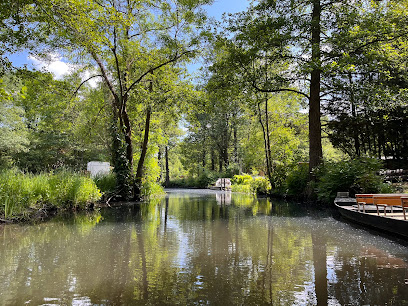
Freilandmuseum Lehde
Experience the rich cultural heritage of the Spreewald at Freilandmuseum Lehde, a captivating open-air museum in Lübbenau, Germany.
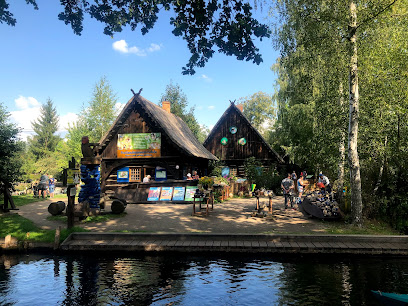
Slavic castle Raddusch
Explore the rich cultural heritage at Slavic Castle Raddusch, a unique local history museum, bistro, and souvenir shop in Vetschau, Spreewald.
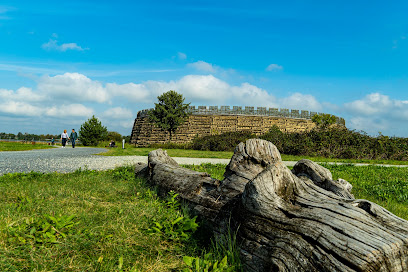
Bismarck Tower
Discover the Bismarck Tower in Spreewald: a historical landmark offering stunning views and rich cultural heritage in a serene natural setting.
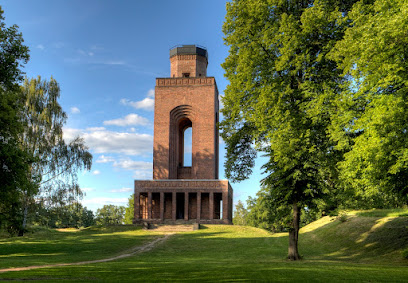
Spreewald-Museum
Explore the rich history and culture of the Spreewald region at the Spreewald-Museum in Lübbenau, a must-visit destination for history enthusiasts and travelers.
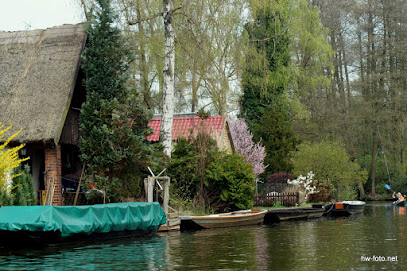
Schlossinsel Lübben
Experience the natural beauty and historical charm of Schlossinsel Lübben in the heart of Spreewald, a must-visit destination for nature lovers and history buffs.
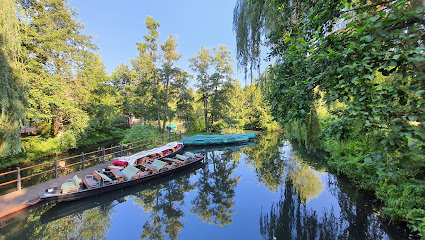
Gherkin Museum in the hotel complex Starick
Explore the Gherkin Museum in Spreewald, where pickling tradition meets culinary delight in a charming museum setting.
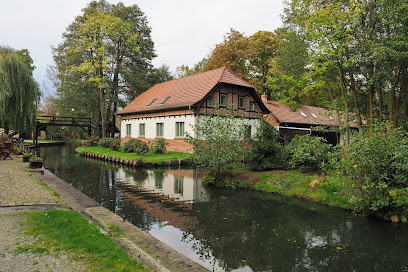
Sagenhafter Brunnen
Experience the magical Sagenhafter Brunnen in Lübbenau, where fairy tales come to life amidst scenic beauty and rich local culture.
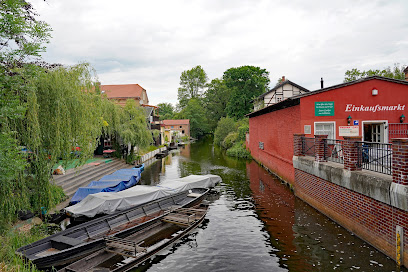
Lehde
Explore the enchanting village of Lehde, where traditional charm meets the stunning natural beauty of the Spreewald region.
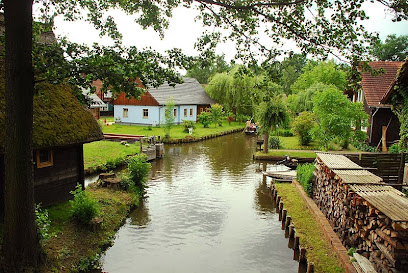
Krabatschleuse
Experience the tranquility of Krabatschleuse in Burg (Spreewald), a perfect blend of nature, recreation, and stunning landscapes for every traveler.
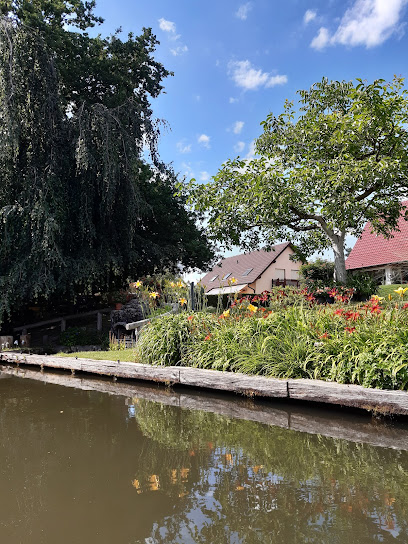
Hutungschleuse
Explore the tranquil beauty of Hutungschleuse in Spreewald, where serene canals meet lush landscapes for an unforgettable nature experience.
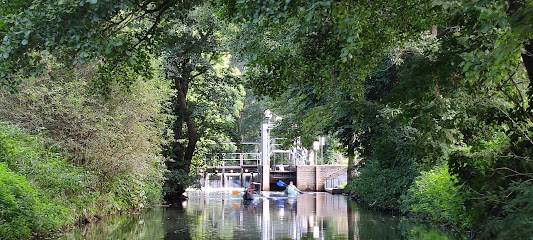
Überwachsenes Gebäude
Explore Überwachsenes Gebäude in Lübben, a historic gem where nature meets architecture, steeped in rich local history and stunning visuals.
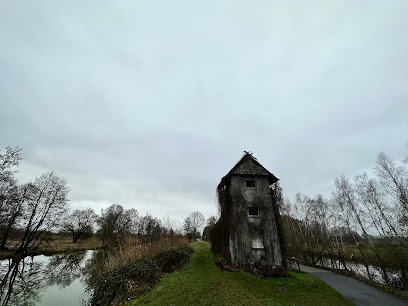
Kahnabfahrtstelle Kleiner Hafen
Explore the tranquil waterways of Spreewald from Kahnabfahrtstelle Kleiner Hafen, a perfect starting point for unforgettable boat tours and scenic adventures.
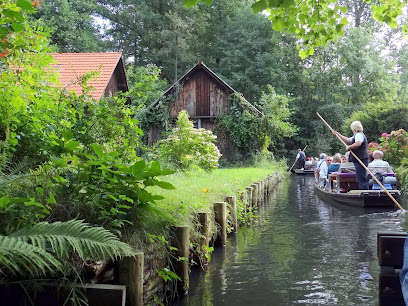
Burg-Lübbener-Kanal, Waldschlösschenschleuse
Explore the serene beauty and rich history of Burg-Lübbener-Kanal and Waldschlössenschleuse, a must-visit destination in the heart of Spreewald.
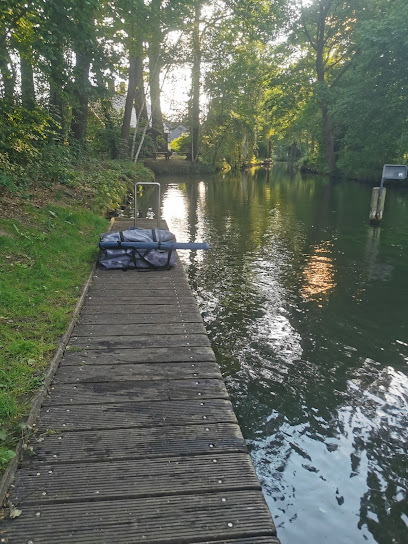
Spreewehr Leibsch
Experience the beauty of nature at Spreewehr Leibsch, a tranquil tourist attraction in Unterspreewald, perfect for relaxation and adventure.
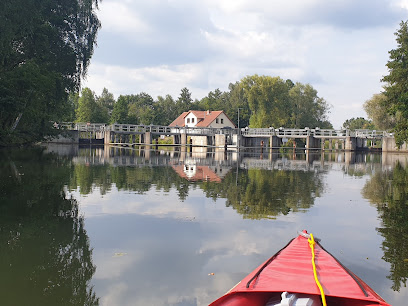
Unmissable attractions to see
Spreewelten Bad Lübbenau
Experience the magic of Spreewelten Bad in Lübbenau: Swim with penguins, relax in thermal waters, and discover the charm of the Spreewald region for an unforgettable family adventure.
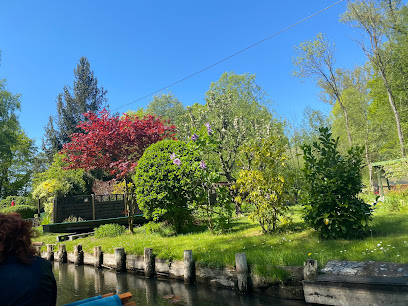
Spreewald Biosphere Reserve
Discover the Spreewald Biosphere Reserve: A unique UNESCO landscape of canals, culture, and nature just southeast of Berlin, offering boat tours, kayaking, and Sorbian traditions.
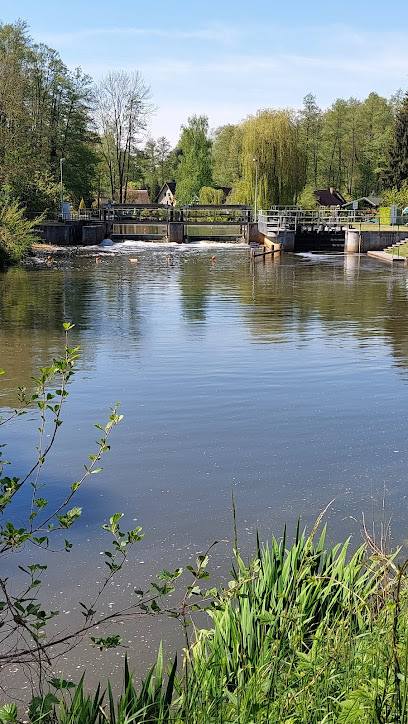
Freilandmuseum Lehde
Discover 19th-century Sorbian/Wendish life at Brandenburg's oldest open-air museum in Lehde, Spreewald, with traditional farmsteads, crafts, and gherkin tales.
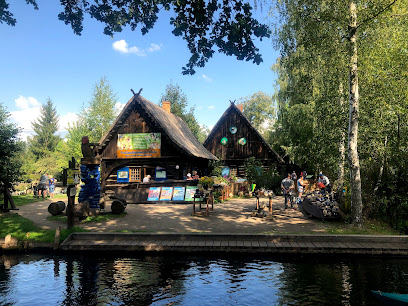
Slavic castle Raddusch
Discover the fascinating world of Slavic history and culture at the reconstructed Slavic Castle Raddusch, an archaeological open-air museum in the heart of the Spreewald forest.
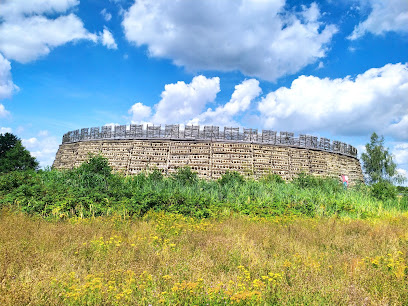
Bismarck Tower
Discover panoramic Spreewald views from the historic Bismarck Tower in Burg, a landmark offering a glimpse into Germany's past and the region's natural beauty.
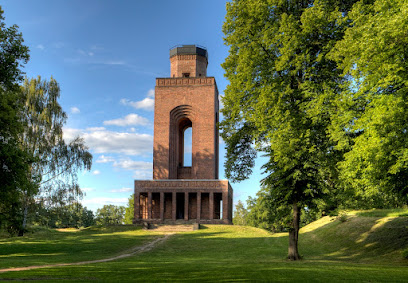
Spreewald-Museum
Discover the Spreewald's captivating history and culture at this immersive museum, featuring historical shops, a Spreewald railway exhibit, and interactive displays for all ages.
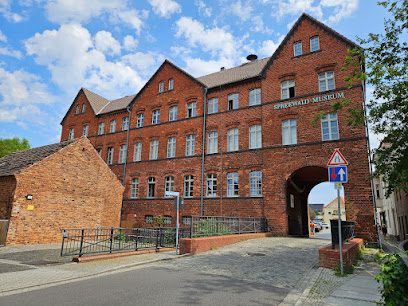
Kleiner Spreewald
Discover a miniature Spreewald near Berlin: Explore canals, nature trails, and unique sculptures in this charming park, perfect for families and nature lovers seeking a tranquil escape.
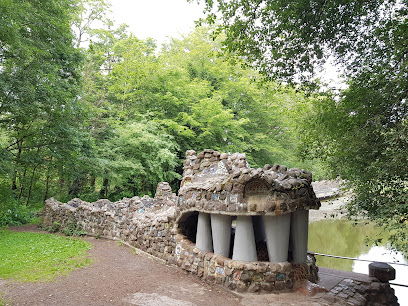
Schlossinsel Lübben
Discover Schlossinsel Lübben: A Spreewald oasis blending nature, culture, and recreation with aquatic playgrounds, historic sites, and boat tours for an unforgettable experience.
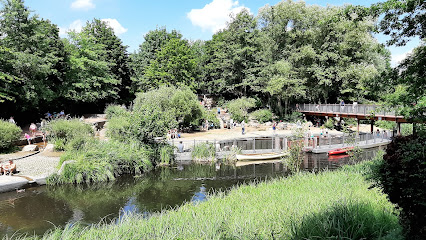
Urban and regional museum in the castle to Lubben
Discover the captivating history and culture of Lübben and Lower Lusatia at the Urban and Regional Museum, nestled within the stunning Renaissance-style Lübben Castle.
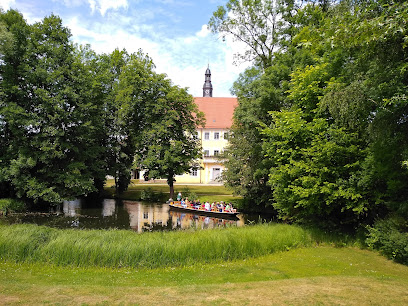
Gherkin Museum in the hotel complex Starick
Discover the briny depths of Spreewald's culinary heritage at the Gherkin Museum in Lübbenau, where centuries of pickling tradition and local flavor come to life.
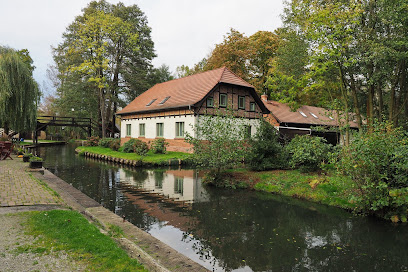
Sagenhafter Brunnen
Discover the enchanting world of Spreewald's legends at Lübbenau's Sagenhafter Brunnen, where mythical figures come to life in a whimsical fountain, celebrating the region's rich folklore.
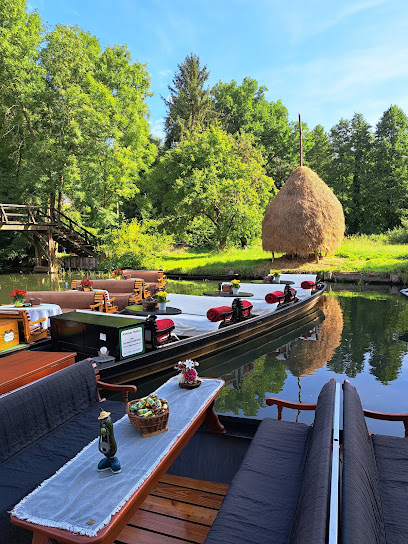
Lehde
Discover Lehde, the 'Venice of the Spreewald': A car-free village with charming canals, traditional wooden houses, and a rich Sorbian heritage within a UNESCO Biosphere Reserve.
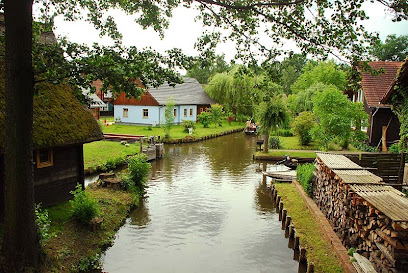
Halbe Kaiserbahnhof
Step back in time at the Kaiserbahnhof Halbe, a meticulously restored royal railway station offering a glimpse into Germany's imperial past and a unique venue for events.
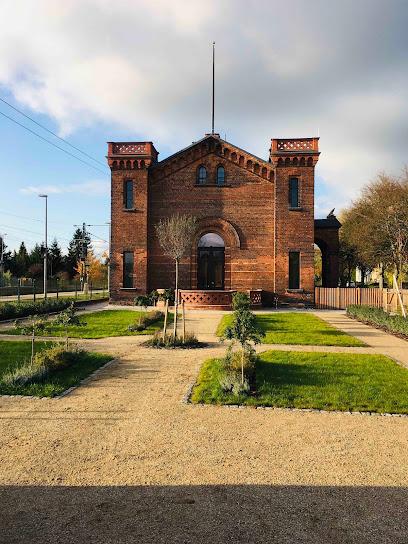
Halbe Forest Cemetery
Reflect on the human cost of war at Halbe Forest Cemetery, a tranquil and poignant memorial to the Battle of Halbe, where over 24,000 souls rest in a serene woodland setting.
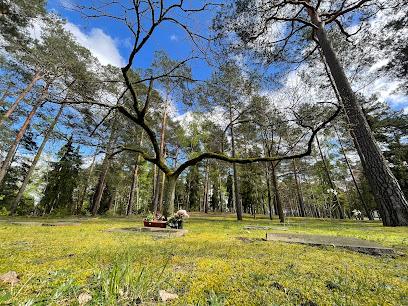
Barzlin
Discover Barzlin, a serene natural haven in the Spreewald Biosphere Reserve, offering a blend of historical intrigue and ecological significance for an unforgettable escape.
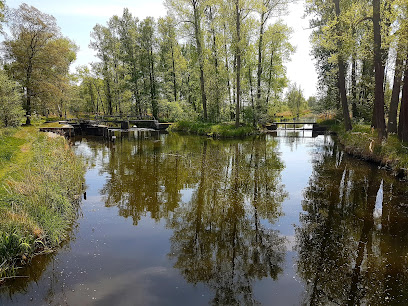
Essential places to dine
Restaurant Kräutermühle Burg (Spreewald)
Experience authentic German cuisine at Restaurant Kräutermühle Burg, set in the scenic Spreewald region—where culinary tradition meets natural beauty.
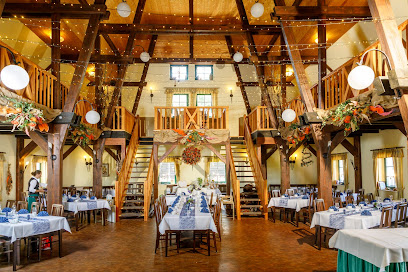
Gasthaus Wotschofska
Discover authentic German cuisine at Gasthaus Wotschofska in Lübbenau - where tradition meets taste in the heart of Spreewald.
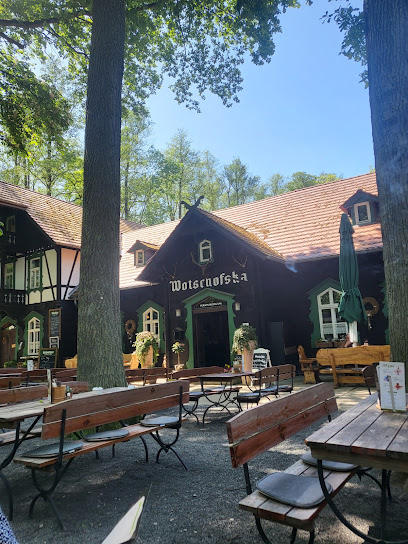
Kaupen Nr.6
Discover the flavors of Spreewald at Kaupen Nr.6 - where tradition meets culinary excellence in a charming setting.
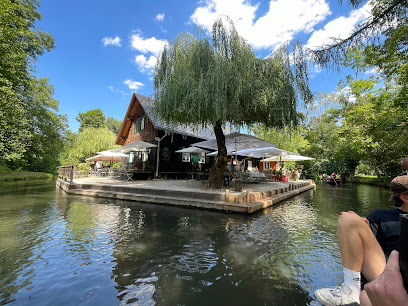
Steakhaus Santa Fe
Discover the best steaks in Lübbenau at Steakhaus Santa Fe - where every bite brings the taste of the Wild West.
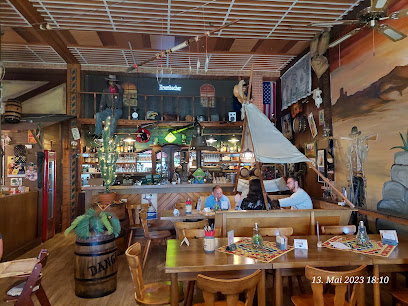
Traditionsgasthaus Zum Grünen Strand der Spree
Experience authentic German cuisine at Traditionsgasthaus Zum Grünen Strand der Spree, nestled in Lübbenau/Spreewald's scenic beauty.
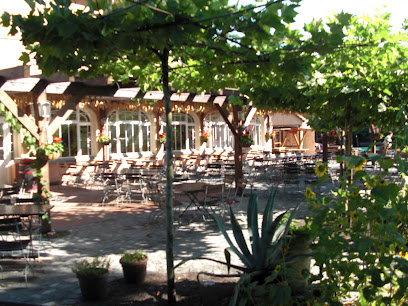
Café Venedig
Discover Café Venedig: Your tranquil oasis in Spreewald Biosphere Reserve offering delightful local cuisine amidst stunning natural beauty.
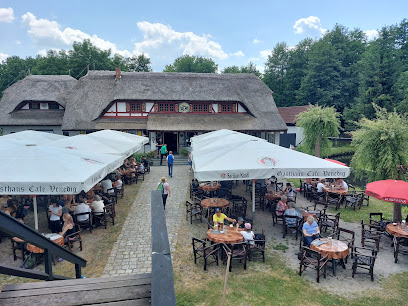
Restaurant & Café Hanschick
Experience authentic German cuisine and delightful homemade ice cream at Restaurant & Café Hanschick in Lübbenau.
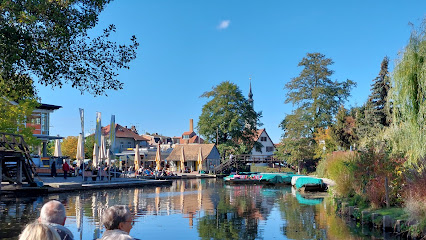
Gasthaus Dubkow-Mühle
Experience authentic German cuisine in an idyllic setting at Gasthaus Dubkow-Mühle, your perfect escape in Lübbenau's stunning Spreewald region.
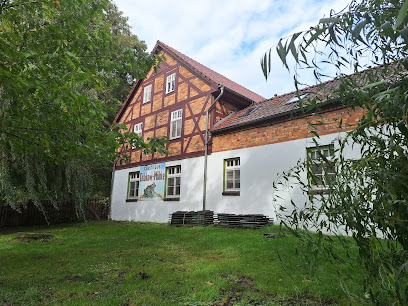
Bei Benno's
Discover Bei Benno's: A culinary haven in Lübbenau offering authentic German dishes in a cozy setting.
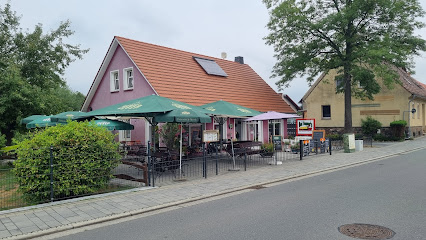
SPREE.Erlebnisrestaurant
Discover SPREE.Erlebnisrestaurant in Lübbenau: where great food meets exciting bowling fun for an unforgettable experience.
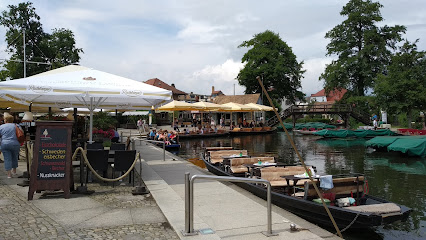
Spreewaldrestaurant BUBAK
Experience authentic German cuisine at Restaurant BUBAK in Spreewald - where nature meets tradition for an unforgettable dining experience.
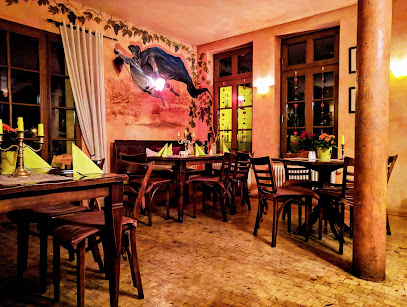
Brenners Bauernschänke
Discover authentic German cuisine and relax in the beautiful beer garden at Brenners Bauernschänke in Lübbenau/Spreewald.
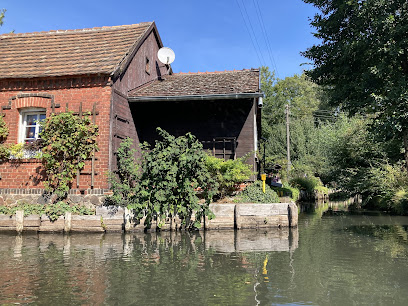
Restaurant Suez Spreewald
Experience authentic German cuisine in Lübbenau's beautiful Spreewald region at Restaurant Suez - where tradition meets taste.
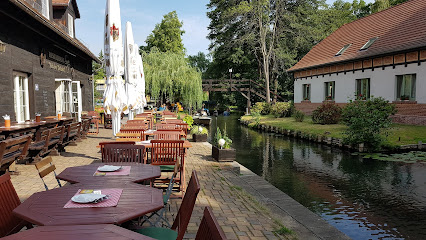
Landgasthof Zur Wildbahn
Experience authentic Spreewald cuisine at Landgasthof Zur Wildbahn - a perfect blend of local flavors and natural beauty.
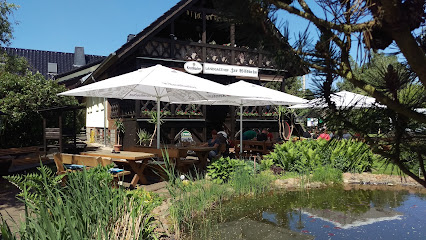
Gasthaus Oppott - die Stallwirtschaft H. Koal
Experience authentic German cuisine at Gasthaus Oppott in Lübbenau's scenic Spreewald region – a must-visit for every traveler.
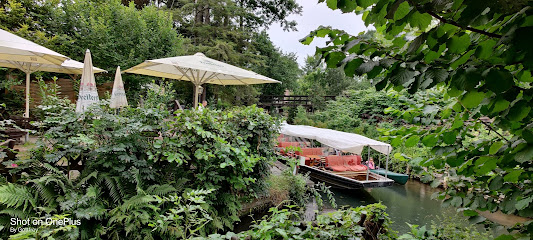
Markets, malls and hidden boutiques
Kaufland
Explore the vibrant flavors of Lübbenau at Kaufland, your go-to supermarket for local ingredients and everyday essentials.
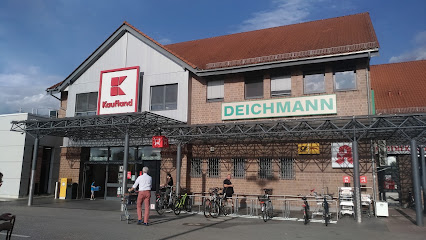
Gurken Paule
Explore the culinary treasures of Spreewald at Gurken Paule, where local pickles and delicacies await your discovery.
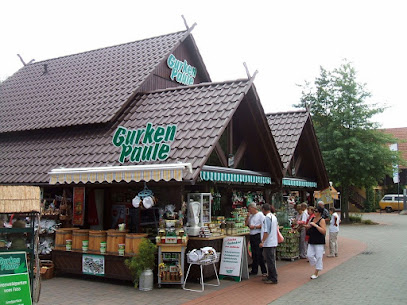
Restaurant & Café Hanschick
Discover the flavors of Germany at Restaurant & Café Hanschick in Lübbenau, where tradition meets taste in a cozy setting.
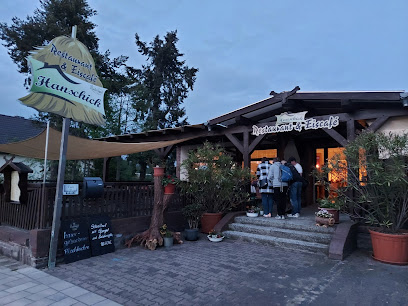
Kolosseum Spreewald GmbH
Discover Kolosseum Spreewald in Lübbenau, a vibrant shopping mall offering diverse retail and medical services in a modern setting.
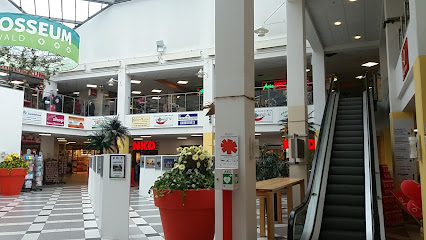
REWE
Explore the best of local and international flavors at REWE, Lübbenau's premier supermarket, perfect for stocking up during your travels.
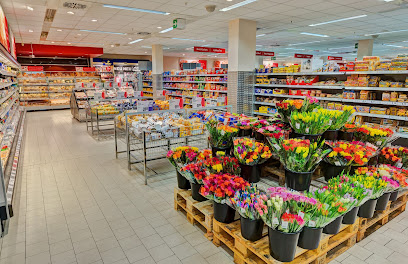
toom Baumarkt Lübbenau
Explore toom Baumarkt Lübbenau for all your home improvement needs with quality materials, expert advice, and DIY inspiration.
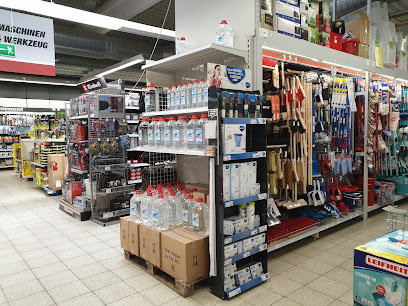
ALPAKA HOF | online FARM SHOP | BIO EIS | Alpaca Finca Spreewald
Experience the joys of nature and family fun at Alpaka Hof, a unique destination with alpacas, outdoor activities, and delicious treats.
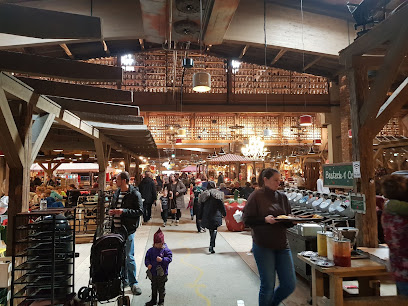
Einkaufsmarkt im Schlossbezirk
Explore the vibrant Einkaufsmarkt im Schlossbezirk for fresh local goods, delicious bakery items and unique souvenirs in Lübbenau.
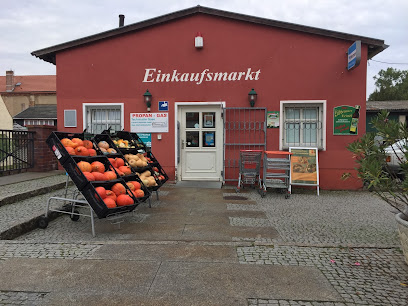
Netto Marken-Discount
Experience the local charm and unbeatable prices at Netto Marken-Discount, your go-to discount supermarket in Lübbenau/Spreewald.
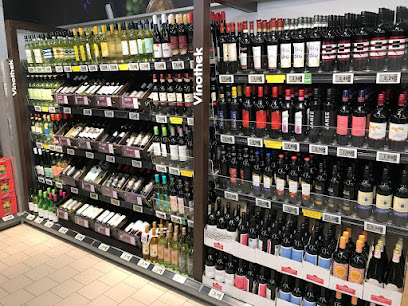
ALDI Nord
Explore local flavors and quality products at ALDI Nord in Lübbenau, your go-to supermarket for groceries and regional delicacies.
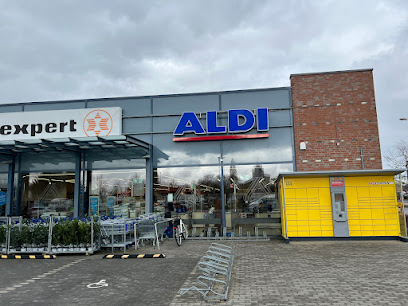
PENNY
Explore the vibrant PENNY supermarket in Burg (Spreewald) for local products, essentials, and a true taste of the region.
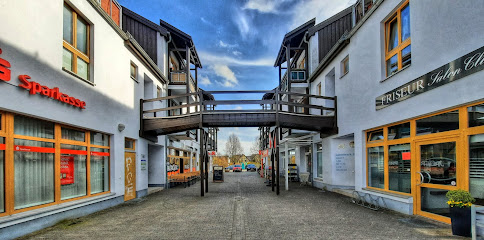
Wohnstore Petzold
Explore Wohnstore Petzold in Vetschau for an exquisite range of flooring, curtains, and home decor essentials that reflect local craftsmanship.
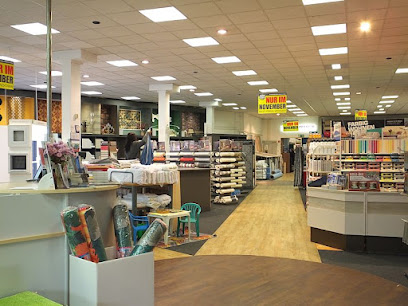
Herzallerliebst- Die Genussmanufaktur
Explore the charm of Lübben at Herzallerliebst- Die Genussmanufaktur: a delightful gift shop and café offering local treasures and delicious soul food.
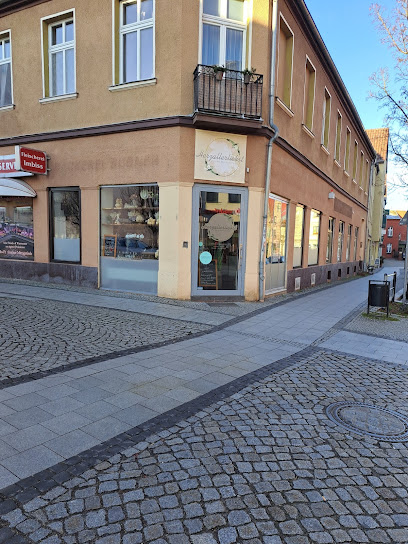
Wurlawy - Sarah Gwiszcz - Modedesign
Explore the unique designs of Wurlawy in Lübbenau, where local fashion meets contemporary style in a charming clothing store.
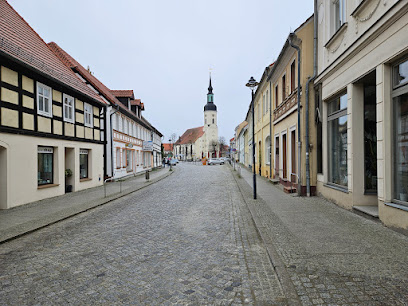
Fahrrad Metzdorf
Discover the breathtaking beauty of Spreewald with Fahrrad Metzdorf's top-notch bicycle rentals and repair services.
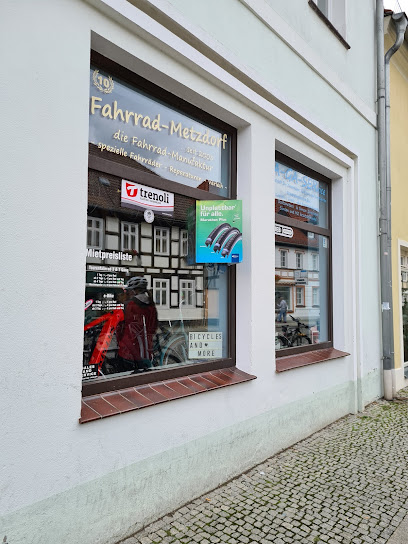
Essential bars & hidden hideouts
STRANDCAFÉ - Restaurant & Terrasse
Experience the delightful flavors and serene ambiance of Strandcafé in Lübben, Spreewald, where local cuisine meets natural beauty.
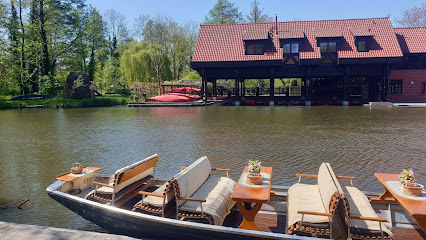
Hotelanlage Starick - Karl-Heinz & Jeannette Starick GbR
Discover the serene charm of Hotelanlage Starick in Lübbenau, offering cozy stays, delightful dining, and a taste of the scenic Spreewald.

Brenners Bauernschänke
Experience the heart of German cuisine in a charming beer garden setting at Brenners Bauernschänke, a must-visit in the Spreewald region.
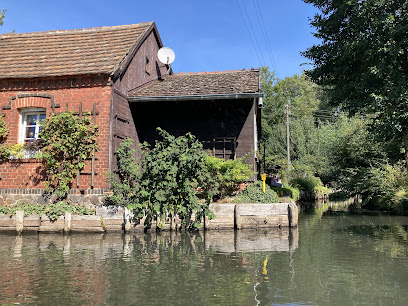
Zum Unterspreewald
Experience authentic local cuisine in the heart of Spreewald at Zum Unterspreewald, a friendly gastropub offering traditional dishes and a cozy ambiance.
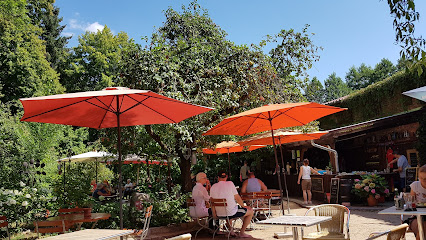
Spreewald-Gasthaus Byttna
Savor the culinary heritage of the Spreewald at Spreewald-Gasthaus Byttna, a buffet restaurant offering local flavors in a cozy atmosphere.
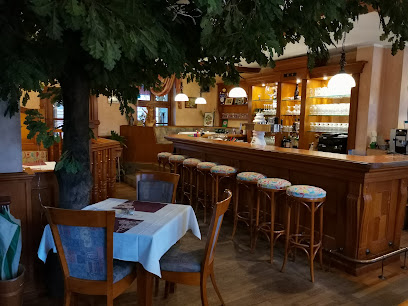
Bismarckschänke
Experience authentic German cuisine and local brews in the heart of Burg (Spreewald) at Bismarckschänke, a perfect culinary retreat for tourists.
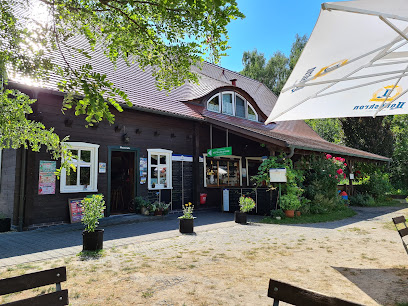
Biergarten Spreewaldhof Leipe
Discover the essence of German culture at Biergarten Spreewaldhof Leipe, a charming beer garden in the scenic Spreewald region, perfect for food and beer enthusiasts.
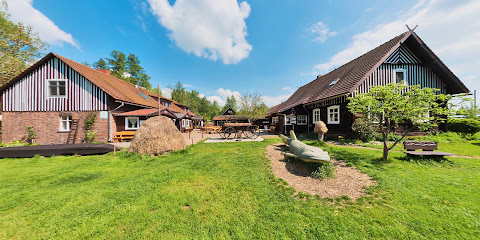
Café Lange - Bork Lange
Discover the cozy ambiance and delightful flavors of Café Lange, a must-visit restaurant and coffee shop in Lübben (Spreewald).
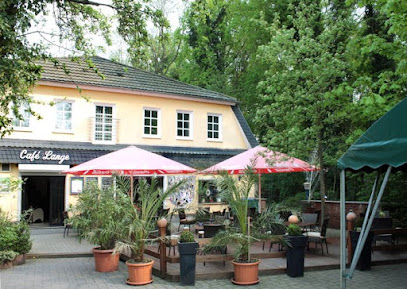
Zum fröhlichen Hecht
Discover the charm and flavors of traditional German cuisine at Zum fröhlichen Hecht in Lübbenau/Spreewald.
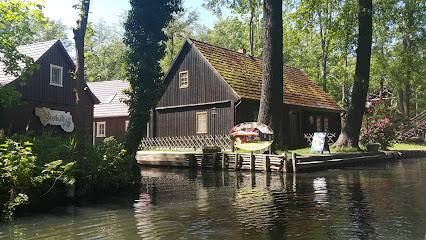
SAFTLADEN - auf der Schloßinsel Lübben
Experience the enchanting atmosphere of SAFTLADEN, a premier bar on Schloßinsel Lübben, where delightful drinks meet stunning views.
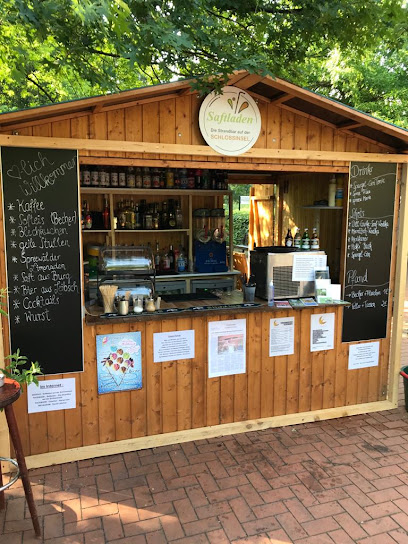
Gaststätte Heuschober
Experience the cozy atmosphere and traditional German cuisine at Gaststätte Heuschober in Lübbenau, a bar that captures the essence of local culture.
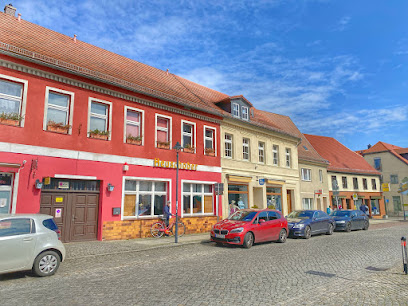
Gaststätte zur Eisenbahn
Savor the taste of authentic German cuisine at Gaststätte zur Eisenbahn in Lübbenau, where tradition meets a warm pub atmosphere.
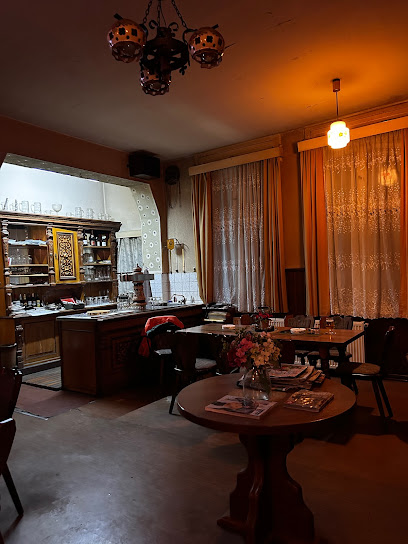
Unter der 250 jährigen Eiche
Discover the serene beauty and local flavors at Unter der 250 jährigen Eiche, a charming beer garden in the heart of Spreewald.
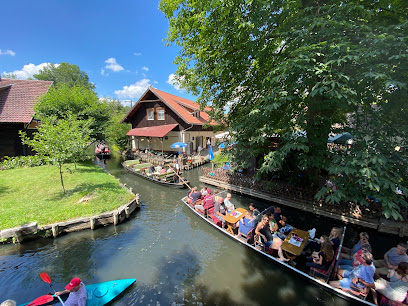
Toni's Lounge
Experience the best of cocktails and cuisine at Toni's Lounge, the perfect spot for relaxation in the heart of Lübben, Spreewald.
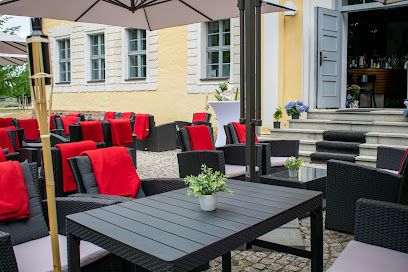
Local Phrases about Spreewald
-
- HelloHallo
[ha-lo] - GoodbyeAuf Wiedersehen
[owf vee-der-sehn] - YesJa
[ya] - NoNein
[nine] - Please/You're welcomeBitte
[bit-teh] - Thank youDanke
[dahn-keh] - Excuse me/SorryEntschuldigung
[ent-shool-di-gung] - How are you?Wie geht es dir?
[vee gate es deer] - Fine. And you?Gut. Und du?
[goot oond doo] - Do you speak English?Sprichst du Englisch?
[shprikhst doo eng-lish] - I don't understandIch verstehe nicht
[ikh fer-shteh-eh nikht]
- HelloHallo
-
- I'd like to see the menu, pleaseIch möchte bitte die Speisekarte sehen
[ikh merkht-eh bit-te dee shpi-ze-kahr-teh zehn] - I don't eat meatIch esse kein Fleisch
[ikh es-se kine fli-sh] - Cheers!Prost!
[prohst] - I would like to pay, pleaseIch möchte bitte bezahlen
[ikh merkht-eh bit-teh be-tsal-en]
- I'd like to see the menu, pleaseIch möchte bitte die Speisekarte sehen
-
- Help!Hilfe!
[hil-fuh] - Go away!Geh weg!
[gey vekh] - Call the Police!Rufen Sie die Polizei!
[roo-fen zee dee po-lee-tsy] - Call a doctor!Rufen Sie einen Arzt!
[roo-fen zee i-nen ahrts] - I'm lostIch habe mich verirrt
[ikh hah-buh mikh feh-rirt] - I'm illIch bin krank
[ikh bin krank]
- Help!Hilfe!
-
- I'd like to buy...Ich möchte kaufen...
[ikh merkht-eh kow-fen] - I'm just lookingIch schaue nur
[ikh sh-ow-eh noor] - How much is it?Wie viel kostet das?
[vee feel kaws-tet das] - That's too expensiveDas ist zu teuer
[das ist tsoo toy-er] - Can you lower the price?Können Sie den Preis senken?
[ker-nen zee den prise zen-ken]
- I'd like to buy...Ich möchte kaufen...
-
- What time is it?Wie spät ist es?
[vee shpeht ist es] - It's one o'clockEs ist ein Uhr
[es ist iyn oor] - Half past (10)Halb (zehn)
[halb (tsayn)] - MorningMorgen
[mohr-gen] - AfternoonNachmittag
[nahk-mit-tahk] - EveningAbend
[ah-bent] - YesterdayGestern
[geh-stern] - TodayHeute
[hoy-teh] - TomorrowMorgen
[mohr-gen] - 1Eins
[ayns] - 2Zwei
[tsvay] - 3Drei
[dry] - 4Vier
[feer] - 5Fünf
[fuhnf] - 6Sechs
[zeks] - 7Sieben
[zee-ben] - 8Acht
[ahkht] - 9Neun
[noyn] - 10Zehn
[tsayn]
- What time is it?Wie spät ist es?
-
- Where's a/the...?Wo ist ein/der...?
[vo ist iyn/dehr] - What's the address?Was ist die Adresse?
[vas ist dee ah-dreh-seh] - Can you show me (on the map)?Können Sie mir zeigen (auf der Karte)?
[ker-nen zee meer tsee-gen (owf dehr kar-teh)] - When's the next (bus)?Wann kommt der nächste (Bus)?
[van kommt dehr nai-khs-teh (boos)] - A ticket (to ....)Eine Fahrkarte (nach ....)
[i-ne fahr-kahr-teh (nakh)]
- Where's a/the...?Wo ist ein/der...?
History of Spreewald
-
Spreewald, located in the state of Brandenburg, Germany, is a unique biosphere reserve known for its extensive network of waterways. The area was originally inhabited by the Sorbs, a Slavic people who settled there around the 6th century. They cultivated the land, establishing a rich cultural heritage that is still evident today in the region's language, customs, and traditional costumes.
-
During the medieval period, German settlers began to move into the Spreewald area, bringing with them their own customs and agricultural practices. This period saw the construction of numerous villages and the development of the region's characteristic landscape, marked by fields, meadows, and forests. The coexistence of German and Sorbian cultures led to a unique blend of traditions that define Spreewald's identity.
-
In the 19th century, the Industrial Revolution brought significant changes to Spreewald. The construction of canals for transportation and irrigation transformed the region's economy and landscape. These waterways, designed to facilitate the transport of goods and people, are now a defining feature of Spreewald, offering scenic routes for boat tours and contributing to its status as a UNESCO Biosphere Reserve.
-
Spreewald, like much of Germany, was affected by the events of World War II. The region saw some military activity and post-war reconstruction efforts. Following the war, Spreewald became part of East Germany, and the socialist government implemented various agricultural reforms. Despite these changes, the region managed to preserve its unique cultural and natural heritage.
-
In 1991, Spreewald was designated a UNESCO Biosphere Reserve, recognizing its exceptional natural beauty and biodiversity. This status has helped to protect the area from overdevelopment and promote sustainable tourism. Today, Spreewald is renowned for its picturesque landscapes, traditional Sorbian culture, and culinary specialties such as Spreewald gherkins. It remains a popular destination for visitors seeking both natural beauty and cultural enrichment.
Spreewald Essentials
-
Spreewald is located in the state of Brandenburg, Germany. The nearest major city is Berlin, approximately 100 kilometers away. You can reach Spreewald by train from Berlin Hauptbahnhof (Berlin Central Station) to Lübbenau or Lübben, which takes about one hour. Alternatively, you can drive from Berlin via the A13 motorway, which takes roughly 1.5 hours. There are also bus services available from Berlin and other nearby cities.
-
Within Spreewald, transportation options include renting bicycles, using local taxis, or taking advantage of the extensive network of canals by renting a kayak or going on a traditional punt boat tour. Public buses connect the main towns of Lübbenau, Lübben, Burg, and Vetschau. Cycling is highly recommended as the area is largely flat and has well-maintained bike paths.
-
The official currency in Germany is the Euro (€). Credit cards are widely accepted in hotels, restaurants, and larger shops, but it is advisable to carry cash for smaller establishments and local markets. ATMs are available in the main towns of Spreewald, so withdrawing cash should not be a problem.
-
Spreewald is generally a safe destination for tourists. However, standard precautions should be taken, such as not leaving valuables unattended and being aware of your surroundings, especially in crowded areas. There are no specific high-crime areas targeting tourists in Spreewald, but it is always good to remain vigilant.
-
In case of an emergency, dial 112 for immediate assistance, which is the European emergency number for police, fire, and medical emergencies. Local police stations and medical facilities are available in Lübbenau and Lübben. It is advisable to have travel insurance that covers medical emergencies. Pharmacies are available in the main towns for minor health issues and over-the-counter medications.
-
Fashion: Do wear comfortable and weather-appropriate clothing, especially for outdoor activities like cycling or boating. Avoid overly flashy attire. Religion: Do respect local customs and traditions, but note that Spreewald is not particularly religious. Public Transport: Do be respectful to other passengers and give up your seat to elderly or disabled passengers. Don’t eat or drink on public transport. Greetings: Do greet people with a friendly 'Guten Tag' or 'Hallo.' A firm handshake is customary. Eating & Drinking: Do try local specialties like Spreewald gherkins and fish dishes. Don’t forget to say 'Prost' when toasting with locals.
-
To experience Spreewald like a local, consider visiting during the Spreewald Festival in July, where you can enjoy traditional music, dance, and food. Rent a bike to explore the scenic routes at your own pace. Engage with local boatmen (Kahnfährmann) for a traditional punt boat tour and ask them about the folklore and history of the region. Visit local markets to buy fresh produce and handmade crafts. Don’t miss the chance to relax in one of the many thermal spas available in the area.
Trending Landmarks in Spreewald
-
Spreewald Biosphere Reserve
-
Freilandmuseum Lehde
-
Slavic castle Raddusch
-
Bismarck Tower
-
Spreewald-Museum
-
Schlossinsel Lübben
-
Gherkin Museum in the hotel complex Starick
-
Sagenhafter Brunnen
-
Lehde
-
Krabatschleuse
-
Hutungschleuse
-
Überwachsenes Gebäude
-
Kahnabfahrtstelle Kleiner Hafen
-
Burg-Lübbener-Kanal, Waldschlösschenschleuse
-
Spreewehr Leibsch
Nearby Cities to Spreewald
-
Things To Do in Potsdam
-
Things To Do in Dresden
-
Things To Do in Leipzig
-
Things To Do in Szczecin
-
Things To Do in Karlovy Vary
-
Things To Do in Prague
-
Things To Do in Poznan
-
Things To Do in Erfurt
-
Things To Do in Hradec Králové
-
Things To Do in Wroclaw
-
Things To Do in Kutná Hora
-
Things To Do in Plzeň
-
Things To Do in Rostock
-
Things To Do in Hannover
-
Things To Do in Bydgoszcz












